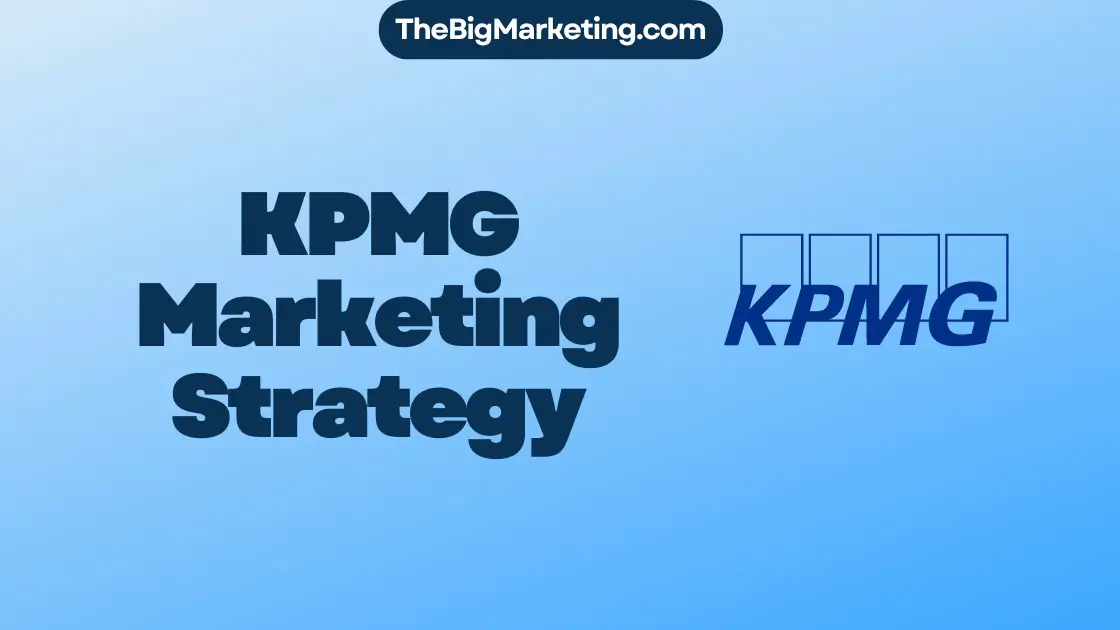In today’s highly competitive grocery market, standing out and effectively positioning a brand can be a significant challenge. Coles, one of Australia’s leading supermarket chains, has taken on this challenge with a strategic marketing approach that has yielded impressive results. Their commitment to understanding the impact of their advertising investments, optimizing media effectiveness, and catering to their customers’ needs has set them apart in the industry.
Coles invests approximately AU$40-50M annually in advertising, with a particular focus on the Christmas season. However, accurately measuring the effectiveness of these investments and linking them to tangible business objectives has been a challenge. To address this, Coles has implemented advanced technology and a GDPR-compliant opt-in mobile panel to measure the impact of their advertising efforts, achieve significant cost savings, and lower media investment by 10% while maintaining competitive performance.
In this case study, we will delve deeper into Coles Marketing Strategy for 2024, highlighting their approach to media measurement, branding and customer engagement, and their vision for the future. We will explore how Coles has successfully navigated the competitive grocery market in Australia, positioning themselves as a trusted retailer and sustaining customer satisfaction.
Key Takeaways:
- Coles invests heavily in advertising, with a particular focus on the Christmas season.
- They have implemented advanced technology and a mobile panel to measure the impact of their advertising efforts.
- By optimizing media effectiveness, Coles has achieved significant cost savings.
- Their branding strategy emphasizes reliability, quality, and customer satisfaction.
- Coles aims to be the most trusted retailer in Australia and sustainably feed all Australians.
The Competitive Grocery Market in Australia
The grocery category in Australia is highly competitive and concentrated. Coles, one of the leading supermarket chains in the country, faces fierce competition from its rivals, with Woolworths being its primary competitor. In order to thrive in this competitive landscape, Coles had to employ effective marketing strategies and position their brand strategically to capture customers’ attention.
Intense Competition in the Grocery Market
The grocery market in Australia is dominated by a handful of major players, including Coles and Woolworths. These two supermarket chains compete relentlessly to attract customers and gain market share. The competition is fierce, as both companies strive to offer the best products, prices, and shopping experience to their customers.
Coles recognized the need to differentiate itself from its competitors and position its brand effectively in the market. By understanding the needs and preferences of their target customers, Coles aimed to create a unique value proposition that would resonate with consumers and give them a competitive edge.
Effective Marketing Strategies and Market Positioning
Coles invested in comprehensive market analysis and competitive intelligence to identify gaps in the market and understand the strengths and weaknesses of its competitors. By conducting a thorough Coles competitive analysis, the company was able to identify opportunities and develop strategies that would help them stand out.
One of the key aspects of Coles’ marketing strategy was market positioning. They wanted to position themselves as the go-to supermarket for quality products, value for money, and exceptional customer service. By emphasizing these key attributes, Coles aimed to attract customers who were looking for a reliable and fulfilling shopping experience.
Additionally, Coles leveraged its extensive network of suppliers and partnerships to offer exclusive products and promotions. This allowed them to differentiate themselves from their competitors and create a unique value proposition for their customers.
Coles’ Approach to Media Measurement
Coles, a prominent Australian supermarket chain, recognized the importance of accurately measuring the impact of their advertising campaigns and analyzing their return on investment (ROI). However, they faced challenges in achieving this goal, such as the absence of a unified measurement source across various media channels and the inability to link media metrics to tangible business objectives. To overcome these hurdles, Coles implemented a comprehensive approach to media measurement.
As part of their strategy, Coles leveraged a GDPR-compliant opt-in mobile panel and advanced technology to track important metrics such as store visitations, footfall attribution, and brand impact. By utilizing these tools, Coles gained valuable insights into the effectiveness of their advertising campaigns. This data-driven approach not only allowed them to optimize their media spend but also enabled them to make informed decisions for future marketing endeavors.
The implementation of the GDPR-compliant opt-in mobile panel and advanced technology enabled Coles to accurately gauge the impact of their advertising campaigns, leading to more effective allocation of resources and improved ROI. This approach empowered Coles to fine-tune their advertising strategies and make data-driven decisions that would resonate with their target audience.
By embracing this comprehensive approach to media measurement, Coles has ensured that their advertising campaigns are not only impactful but also aligned with their overall business objectives. This commitment to precision and effectiveness in digital marketing allows Coles to remain at the forefront of the competitive supermarket industry.
Benefits of Coles’ Approach
- Accurate measurement of media effectiveness
- Optimized media spend
- Data-driven decision making for future campaigns
Coles’ Branding and Customer Engagement Strategy
Coles, one of the leading retailers in Australia, has a strategic branding and customer engagement approach to foster trust and build strong relationships with its customers. Their goal is to become the most trusted retailer in the country by prioritizing customer satisfaction and delivering high-quality products.
As part of their brand promotion strategy, Coles maintains a diverse brand portfolio that caters to different customer segments. They invest in customer relationship management to understand and meet the unique needs of their customers. By segmenting their customer base, Coles can provide tailored solutions and personalized experiences that resonate with specific groups.
Customer Segmentation
Coles places great emphasis on customer segmentation to target specific groups effectively. By dividing their customer base into distinct segments, such as age, location, or lifestyle preferences, Coles can create targeted marketing campaigns that appeal to each segment’s unique interests and needs. This approach enables Coles to connect with customers on a deeper level and deliver tailored solutions that enhance the overall shopping experience.
For example, they may design promotions and offers that specifically target families with young children or health-conscious individuals. By understanding the preferences and behaviors of each segment, Coles can provide customized products and services that meet their specific requirements.
Branding Strategy
Central to Coles’ branding strategy are reliability, responsibility, and making a positive impact on the community. They strive to build trust by consistently delivering quality products and exceptional customer service. Coles’ commitment to responsibility is evident in their focus on sustainability and promoting ethical practices throughout their supply chain.
They actively engage in community initiatives and support local organizations to contribute positively to society. Coles’ dedication to making a difference resonates with customers who seek to align themselves with brands that share their values.
Coles’ Vision and Mission
Coles, a leading retailer in Australia, has a clear vision and mission that guides its branding strategy and overall business approach.
Vision:
Coles’ vision is to become the most trusted retailer in Australia and create long-term shareholder value. They strive to build strong, meaningful relationships with customers and provide exceptional products and services that meet their needs and preferences.
Mission:
At the core of Coles’ mission is the commitment to sustainably feed all Australians and help them lead healthier and happier lives. They place a strong emphasis on sustainable development, sourcing products responsibly, and supporting local suppliers. Coles aims to make a positive impact on the environment and the communities they serve by reducing waste, promoting recycling, and supporting various charitable initiatives.
As part of their branding strategy, Coles focuses on reliability, quality, and customer satisfaction. They strive to deliver a diverse range of high-quality products that customers can trust, ensuring their shopping experience is enjoyable and convenient.
Overall, Coles’ vision and mission shape their approach to business and drive their commitment to providing exceptional value and service to customers while making a positive impact on society and the environment.
References:
Coles’ Strategic Pillars
As part of their overarching Coles Marketing Strategy, Coles has identified three major strategic pillars that guide their business operations and drive their success. These strategic pillars are integrated into every aspect of their operations, from store design to customer engagement and employee empowerment.
1. Smarter Selling
One of Coles’ strategic pillars is the focus on smarter selling. This entails utilizing technology-driven solutions to streamline their stores and supply chains, thereby increasing efficiency and reducing costs. Coles leverages advanced analytics and data-driven insights to optimize their product assortment, pricing, and promotions, ensuring they offer the best value food and beverages to their customers.
2. Motivating Customers
To motivate and engage their customers, Coles employs various marketing techniques and strategies. They understand the importance of delivering a personalized and tailored shopping experience to meet the unique needs and preferences of their customers. Coles utilizes targeted marketing campaigns, loyalty programs, and digital platforms to enhance customer engagement and encourage repeat purchases.
3. Standing and Winning Together
Coles believes in the power of unity and embraces collaboration to achieve mutual success. This strategic pillar focuses on fostering a positive and inclusive work environment, where employees are valued, empowered, and motivated. Coles invests in training and development programs to ensure their team members have the necessary skills and knowledge to deliver exceptional customer service. By standing and winning together, Coles creates a cohesive and innovative team that drives the company’s growth and success.
These strategic pillars form the foundation of Coles’ marketing strategy, aligning their business objectives with customer expectations and market trends. By prioritizing technology, customer motivation, and unity, Coles ensures they remain a competitive force in the retail industry.
| Strategic Pillars | Key Focus Area |
|---|---|
| Smarter Selling | Utilizing technology-driven solutions for increased efficiency |
| Motivating Customers | Delivering personalized and tailored shopping experiences |
| Standing and Winning Together | Fostering an inclusive work environment and empowering employees |
SWOT Analysis of Coles
Coles, a prominent player in the highly competitive grocery market in Australia, possesses several strengths that contribute to its success. The company has built a reputation for delivering high levels of customer satisfaction, prioritizing quality products, and providing excellent customer service. Additionally, Coles boasts a diverse and powerful brand portfolio, offering a wide range of products to cater to different consumer needs and preferences.
A further source of strength for Coles lies in its strong and well-established dealer community. Through collaborations and partnerships with reliable dealers, Coles is able to ensure a steady supply of products and maintain a robust distribution network, enhancing its ability to meet customer demand.
In terms of market expansion, Coles has a proven track record of successfully entering new markets and strategically merging with complementary firms. These endeavors have allowed Coles to expand its reach and solidify its market presence.
However, Coles also faces various weaknesses that warrant attention. One notable weakness is limited business expansion, which could constrain the brand’s growth potential. Moreover, Coles occasionally encounters negative publicity, which may impact consumer perception and brand reputation. Addressing these weaknesses is essential for Coles to maintain its competitive edge and sustain long-term growth.
There are several opportunities that Coles can capitalize on to further strengthen its market position. Lower inflation rates create favorable conditions for consumer spending and present an opportunity for Coles to attract more customers. Moreover, evolving market dynamics and changing eating habits provide fertile ground for growth and innovation. Coles can explore new market opportunities and launch tailored product offerings to cater to these evolving consumer preferences.
Despite its strengths and opportunities, Coles also faces threats that pose challenges to its market position. Fierce competition from other supermarket chains necessitates continuous innovation and differentiation to stand out in the market. Consumer indecisiveness and changing market trends can also impact Coles’ market share. Additionally, high turnover rates within the industry pose challenges in talent retention and employee engagement.
In summary, Coles’ SWOT analysis reveals a range of internal strengths and weaknesses, as well as external opportunities and threats. By leveraging its strengths, addressing weaknesses, capitalizing on opportunities, and mitigating threats, Coles can continue to refine its branding strategy, enhance its competitive position, and solidify its status as a trusted retailer in the Australian grocery market.
Coles’ Ethnic Food Aisle Strategy
Coles, the renowned supermarket chain, has adopted a strategic approach to capture a new customer segment by introducing ethnic food aisles in their supermarkets. The objective behind this initiative was to tap into the diverse and multicultural market in Australia. Coles aimed to understand the impact of this strategy on sales before implementing it across all their stores, ensuring optimal results.
To evaluate the effectiveness of the ethnic food aisle strategy, Coles utilized Test & Learn®’s proprietary control matching methodology. This robust methodology allowed Coles to accurately measure the incremental impact of the new aisles and optimize their return on investment (ROI). By employing this data-driven approach, Coles gained valuable insights that informed their decision-making process.
The implementation of the Test & Learn® methodology helped Coles in several ways. Firstly, it enabled them to evaluate the sales performance of the ethnic food aisles accurately. This analysis proved indispensable in identifying opportunities for improvement and refining their market positioning. Additionally, the insights gained from this process allowed Coles to make data-driven decisions and optimize their advertising campaigns to effectively reach their target audience.
Coles recognized the importance of aligning their market positioning with the growing diversity and changing preferences of their customer base. By introducing ethnic food aisles, Coles aimed to create a shopping experience that was inclusive and catered to the evolving culinary interests of their customers. This strategy not only helped Coles attract a new customer segment but also reinforced their commitment to providing a diverse range of products.
By leveraging data-driven insights and adopting innovative strategies like the ethnic food aisle initiative, Coles reinforces its market positioning as a supermarket chain that caters to the diverse needs of its customers. Moving forward, Coles will continue to explore new avenues to enhance their market positioning and effectively engage with their target audience.
Coles’ Digital Marketing and Online Presence
Coles, a leading supermarket chain in Australia, understands the significance of establishing a robust digital presence to thrive in today’s competitive market. Recognizing the growing trend of online shopping, Coles offers a comprehensive online platform that enables customers to conveniently place orders for home delivery or pickup.
Embracing digital marketing strategies, Coles effectively reaches and engages with its target audience. Through targeted advertising campaigns, Coles ensures its brand and products remain visible to potential customers, enhancing brand recognition and driving sales. By leveraging various digital channels, Coles maximizes its reach and connects with consumers across different demographics.
One of the key advantages of Coles’ digital presence is the seamless shopping experience it provides. Customers can easily browse through a wide range of products, take advantage of exclusive online promotions, and conveniently manage their shopping lists. With intuitive and user-friendly interfaces, Coles’ digital platforms allow customers to navigate effortlessly, enhancing the overall shopping experience.
Online Ordering and Delivery Services
Coles’ online ordering system simplifies the shopping process by offering a wide array of products available at customers’ fingertips. With just a few clicks, customers can add items to their virtual shopping carts and complete their purchase without leaving the comfort of their homes. Coles’ efficient delivery and pickup services ensure that customers receive their orders in a timely manner, making grocery shopping more convenient than ever.
Effective Promotion of Products and Promotions
Coles’ digital marketing efforts extend to showcasing its products and promoting exclusive offers and discounts. Through engaging visuals and compelling content, Coles effectively communicates the value of its diverse product range. By actively promoting its products and promotions online, Coles not only boosts sales but also enhances customer loyalty and engagement.
The table below highlights the key aspects of Coles’ digital marketing and online presence.
| Benefits of Coles’ Digital Marketing | Details |
|---|---|
| Enhanced Reach and Visibility | Coles’ digital marketing strategies enable the brand to reach a wider audience and increase its visibility in the market. |
| Improved Customer Engagement | Engaging content and targeted promotions foster stronger connections with customers, encouraging repeat purchases and long-term loyalty. |
| Convenient Shopping Experience | Online ordering and delivery/pickup services provide customers with a convenient and time-saving alternative to traditional shopping methods. |
| Showcasing Products and Promotions | Coles’ digital presence allows for effective presentation of its product range and exclusive offers, enticing customers to make purchases. |
| Competitive Advantage | Coles’ robust online presence positions the brand as a forward-thinking retailer, distinguishing it from competitors in the market. |
The Future of Coles’ Marketing Strategy
Coles is committed to continuously evolving and refining its marketing strategy in order to stay ahead of the ever-changing market landscape. By leveraging data-driven insights and embracing technology, Coles aims to optimize its media spend and generate a higher return on investment (ROI).
To remain competitive in the grocery market, Coles will focus on improving its branding, customer engagement, and market positioning. Sustainability, customer satisfaction, and innovation will be key drivers of their future marketing efforts.
By prioritizing sustainability, Coles will secure its position as a responsible retailer, meeting the evolving needs of customers who prioritize ethical and environmentally friendly products. This commitment will also enhance Coles’ brand reputation and attract a growing segment of conscious consumers.
Achieving customer satisfaction will be a core focus for Coles’ marketing strategy. By delivering exceptional customer experiences, tailored solutions, and personalized offers, Coles aims to build strong relationships and loyalty with its customer base.
Innovation will play a crucial role in Coles’ marketing strategy for the future. Embracing emerging technologies and digital advancements will enable Coles to stay ahead of the curve and offer customers new and convenient ways to shop and engage with the brand.
Through continuous improvement and adaptation, Coles is positioning itself as a leader in the grocery market. By leveraging their strategic marketing approach, Coles is paving the way for a successful future in the retail industry.
Conclusion
Coles’ marketing strategy is a testament to their ability to position themselves effectively in the highly competitive grocery market. By implementing innovative approaches to media measurement, branding, and customer engagement, Coles has successfully differentiated themselves from their competitors and earned the loyalty of their customers. Their commitment to digital marketing initiatives and their strategic pillars has played a significant role in their success.
Looking forward, Coles will continue to refine their marketing strategy to adapt to the ever-evolving market landscape. By leveraging data-driven insights and embracing innovation, they aim to remain a trusted and successful retailer in Australia. Coles’ dedication to sustaining customer satisfaction, enhancing their market positioning, and focusing on sustainability will ensure that they stay ahead in the industry.
As one of the leading players in the grocery market, Coles’ marketing strategy serves as a valuable case study for other brands. Their ability to effectively measure media impact, build a strong brand, and engage with customers has set them apart. By staying ahead of the curve and continuously adapting to the changing market dynamics, Coles has solidified their position as a respected and trusted retailer.





